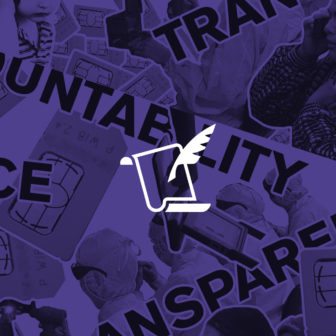Tag: US
Big brother’s little helper inside the European Commission
Through a Freedom of Information Request, Access has acquired an important document that sheds light on the Home Affairs department of the European Commission’s relationship with the U.S. administration on the EU Data Protection Reform effort.
Academics & experts tell Senate to avoid data retention mandates
Today twenty-two professors of law, technology, and human rights sent a letter to Senate leaders urging them to keep data retention out of the USA Freedom (USAF) Act.
Virtual Integrity: Three steps toward building stronger cryptographic standards
As the International Principles on the Application of Human Rights to Communications Surveillance make clear, the preservation of the integrity of communications and systems is a key obligation under international law. Just as it would be unreasonable for governments to insist that all residents of houses should leave their doors unlocked just in case the police need to search a particular property, or to require all persons to install surveillance cameras in their houses on the basis that it might be useful to future prosecutions, it is equally disproportionate for governments to interfere with the integrity of everyone’s communications in order to facilitate its investigations or to require the identification of users as a precondition for service provision or the retention of all customer data.
The legacy and legality of 12333
In December 1981 President Ronald Reagan signed Executive Order 12333, giving U.S. intelligence agencies more power to direct federal agencies to conduct surveillance. More than 20 years later, George W. Bush signed two more executive orders that strengthened and expanded these same powers. President Obama has continued the legacy of, and expanded his administration’s authority under, the order.
Freshly released GISWatch reports address surveillance
The Association for Progressive Communications (APC) and the Humanist Institute for Development Cooperation (Hivos) released the 2014 Global Information Society Watch (GISWatch) report covering the state of digital surveillance around the globe. Access wrote the GISWatch country report for the U.S., The Necessary and Proportionate Principles and the US government.
Access, Coalition to President: Reform Surveillance Now
Access, joined by members of Congress, former government officials, and dozens of civil society groups and private companies, has urged the Obama Administration to reform surveillance practices under Executive Order 12333, which authorizes mass surveillance by NSA and other intelligence agencies with no meaningful limits.

One step closer: USA FREEDOM Act moves US toward greater compliance with human rights law
One step closer: USA FREEDOM Act moves US toward greater compliance with human rights law

US must remedy NSA’s 2012 Syrian internet shutdown
In a recent interview, former National Security Agency contractor and whistleblower Edward Snowden revealed that the Syrian government was not to blame for a nationwide internet blackout on Nov. 29, 2012, the NSA was.

It’s not you, it’s me: committee of cryptographic experts tries to crack NIST/NSA relationship
In response to stories in the New York Times, ProPublica, and the Guardian that the National Security Agency (“NSA”) was undermining encryption standards, The Visiting Committee on Advanced Technology (VCAT) released a report that called for increased transparency and internal expertise at the National Institute for Standards and Technologies (“NIST”). The VCAT reviews and makes recommendations regarding general policy for the National Institute of Standards and Technology. The VCAT formed a Committee of Visitors (“COV”) in mid-April to review the relationship between NIST and the NSA.

Obama ignores user rights with African investment plan
The U.S. cannot so easily ignore its responsibilities under international law and norms, or turn a blind eye to the activities of its corporations abroad.